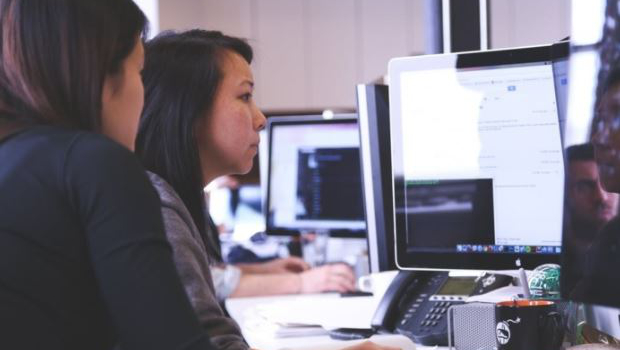
How McLaren Group is changing to attract young tech talent
Set on the edge of the Surrey hills in Woking is the Norman Foster-designed temple of cutting edge engineering: The McLaren Technology Centre. It may be as close as the UK gets to Apple’s ultramodern Infinite Loop, but that doesn’t mean it is proving a siren call for young technology talent.
“We live in a fantastic Lord Foster-designed temple to innovation and technology, but we are finding the new generation of software engineer and data analyst are looking to work outside of a temple like that and increasingly in a WeWork in Clerkenwell, Islington and Shoreditch. Anywhere they can wear flip flops and drink a lot of espresso,” said John Allert, chief marketing officer at McLaren Group, during a keynote session at the Dell Technologies Forum in London.
Despite its name recognition and access to F1 stars like Fernando Alsono to create flashy recruitment videos, hiring isn’t straightforward for McLaren Group.
“You would hope that with the types of products we have that we wouldn’t have any problems with recruitment of young people,” he said. However, “software engineers can pretty much write their own ticket these days and we are having to keep pace with that”.
The reason this war for talent is increasingly important for McLaren comes down to its newest business unit: McLaren Applied Technologies, which looks to take the racing team’s R&D and data science expertise in burgeoning areas like IoT and machine learning into other industries like aviation, healthcare and manufacturing. This requires a level of software development and data science talent which is also capable of applying their skills to industry.
“We are now a technology group with three core components to our business,” said Allert – with 4,000 employees, of which just 800 or so work in Formula One. “So it’s not just finding the rights skill sets but the right people culturally,” he added.
Ruminating further on that stereotype of the flip flop-wearing, espresso-drinking software developer, Allert later told the press during a roundtable: “I use the caricature for the sake of the shorthand… I don’t mean literally that they all wear flip flops or drink too much coffee but it’s more about going back to doing what we have always done and recognising that today’s version of that isn’t familiar to some of us on the board of directors.”
In practice this means McLaren has established ‘hubs’ outside of Surrey in trendy, flexible WeWork office spaces in London, Singapore and the US. Naturally this decentralised way of working creates challenges all of its own.
“The whole cultural core of the business has shifted and the enablement of that [IT] function of the business is now seen as fundamental to our future, it’s not seen as a department,” he said. “So for us culturally to get from there to having people in a WeWork in Southwark is massive for us.”
This has led to a natural period of three years or so of fairly tumultuous turnover at the company. “In truth it has seen massive turnover of people,” Allert admits. “We have people who are more receptive to that culturally, it is unambiguously a performance culture and people that are not able to adapt to that just aren’t with us anymore.
“That means we have been able to bring in a better diversity of thinking, the days of us having people like me [white, male] are hopefully numbered,” he added.
Then from a technology point of view this means more collaboration technology, such as Dell Technologies’ solutions and other tools like Skype and WhatsApp, to bring the innovation happening out at those satellites back to the “mothership” in leafy Surrey in a way that is both “mobile and incredibly robust and secure”.
“Migrating to that way of working quickly for us has been challenging, but that’s real,” he concluded.
IDG News Service





Subscribers 0
Fans 0
Followers 0
Followers